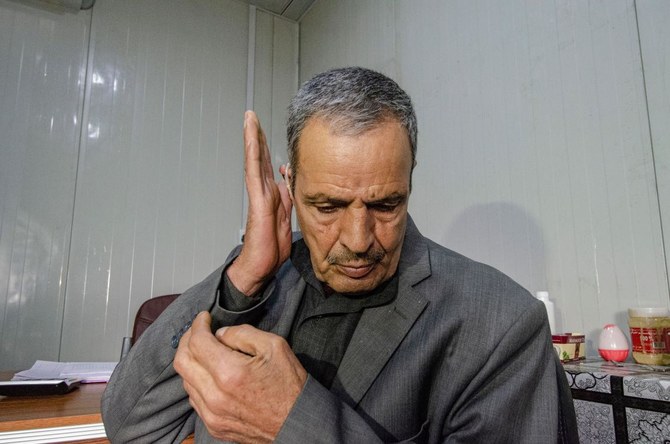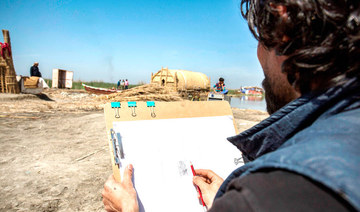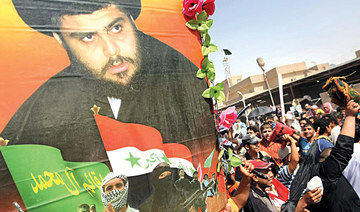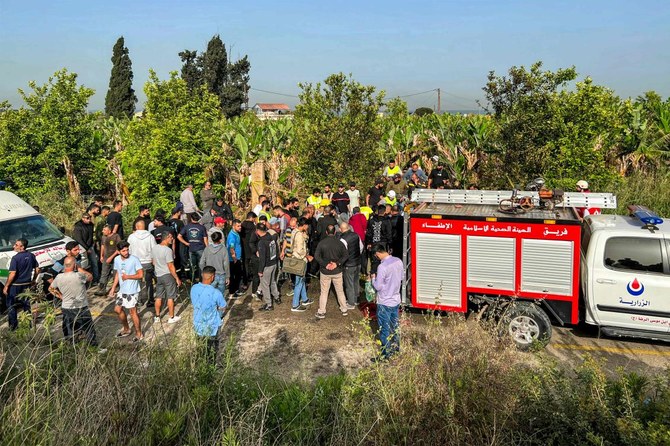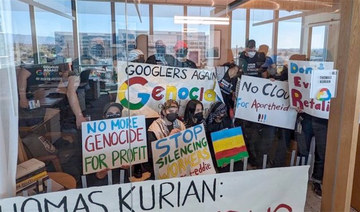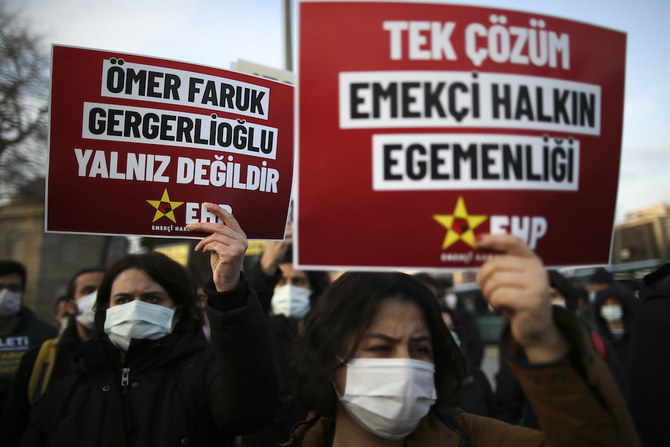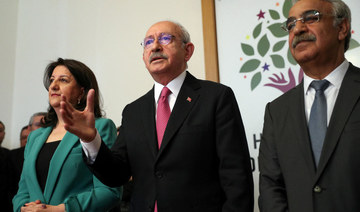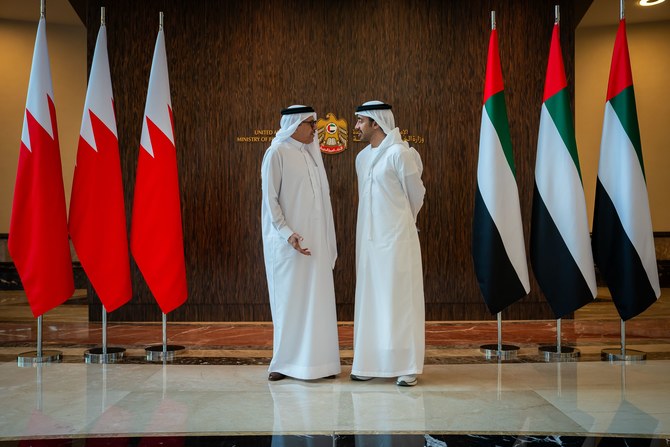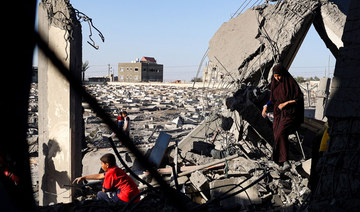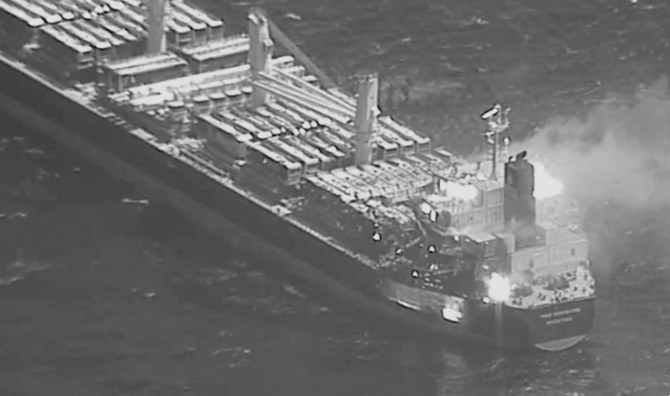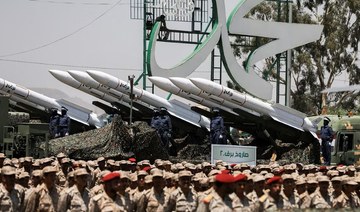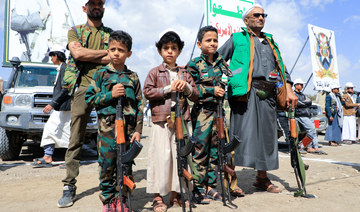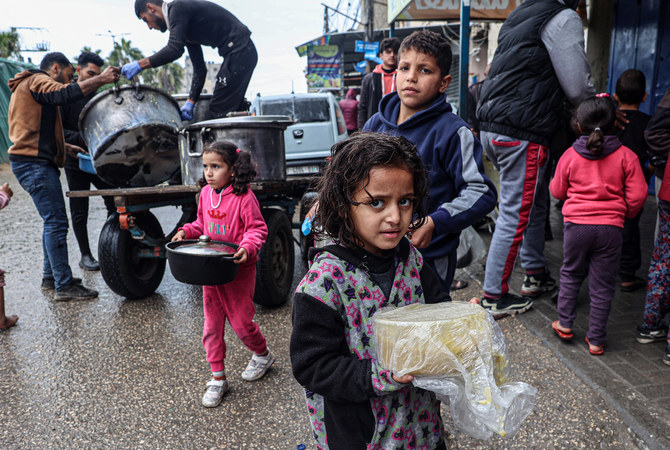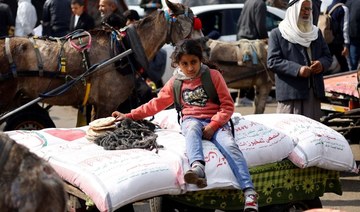MOSUL, Iraq: For months, Alia Ali endured the din of fighting in Iraq’s second city Mosul. Then a missile slammed into her home, killing her husband and her hearing.
The 59-year-old lost her sense of sound in the final phase of the ferocious battle between government forces and militants of the Daesh group, not long before the guns fell silent in July 2017.
For nearly nine months, air strikes, mortar rounds and car bombs pummeled the city relentlessly, and thousands of residents still suffer hearing problems ranging from tinnitus to profound deafness.
“I lost my sense of hearing two years ago,” Ali recalled.
“A warplane hit our neighborhood in the fight for the western half of the city and my husband died of very bad burns,” she told AFP.
Ali spent two years piecing her life back together, but could not afford to get specialized care for her diminished hearing.
“We lost our home and all our possessions — we didn’t have money to go to private clinics,” she said.
Blasts in conflict zones can propel debris into the human ear and rupture the eardrum, which transmits sound further into the cochlea.
Nerves in the cochlea, which sends sound on to the brain to be processed, can also be destroyed by explosions.
Mines have noise levels approaching 170 decibels — twice the loudness needed to cause permanent damage to ears.
In Mosul, civilians were exposed to repeated loud blasts that sent between 15 and 20 a day to hospitals complaining of hearing loss.
“They were bleeding from their ears because of the shelling, but they had nothing to stop the flow,” according to hearing specialist Mohammad Saleh.
“Some never recovered because their nerve cells were torn by the loud sounds.”
Mosul’s health infrastructure was ravaged by Daesh’s reign and subsequent fighting, with the 6,000 hospital beds available before the militant takeover reduced to just 1,000.
With help from outside charities, hospitals are slowly reopening wing by wing.
At Jumhuriya hospital in west Mosul, a specialized hearing impairment center opened its doors less than a year ago with backing from Iraq’s Dary Humanitarian Organization.
The waiting room is packed with people, young and old, waiting to get long-delayed hearing tests to see how badly the blasts have damaged their ears.
“My hearing deteriorated after three mortars hit my house in west Mosul,” 65-year-old Fathi Hussein yelled.
He can only respond to questions that are virtually screamed, and answers them at the same volume.
“I put off treatment because I’m poor. I don’t have the money for consultations or medicine,” he said.
Since the center opened less than a year ago, it has treated several thousand patients, according to specialist Mohammad Said.
“We have distributed 2,000 hearing aids so far. More complex cases get sent to hospitals in Baghdad for treatment, including cochlear implants which aren’t available here yet,” Said told AFP.
He expects there are thousands more cases that have yet to visit the Jumhuriya center.
“Some patients went to private clinics, others went elsewhere in Iraq or even left the country and still others have received no treatment at all,” he said.
For younger patients, partial deafness means more than just shouting to be heard — it can affect schooling.
“In kids especially, hearing loss can damage speaking ability,” Said said.
“It’s extremely important because it means the hearing aids we distribute aren’t enough, and these children are in need of treatments and speaking rehabilitation that we don’t offer here.”
Five-year-old Mohannad may not remember much of life under bombardment in Mosul, but it will likely mar his education for years to come.
He suffers both hearing and speech impediments from the fighting that were long left untreated.
“I didn’t notice how weak his hearing was until weeks after Mosul was liberated,” his mother told AFP.
She said she was now desperate to get free treatment for Mohannad in time for him to finally enrol in classes this autumn.
“I want to go to school like our neighbor’s son, Ahmad,” Mohannad mumbled with difficulty.



